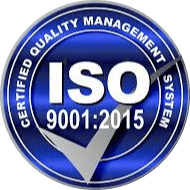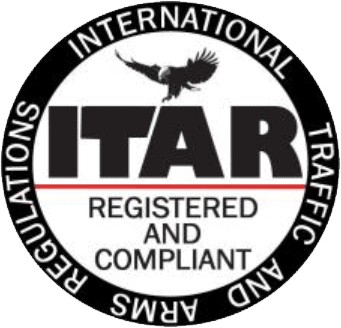Injection Molding 101: Choosing The Right Material
Leave a CommentIt’s a widely used process, but what is injection molding? It’s a method for manufacturing high-volume parts made of glass, metal, and other materials. Plastic injection molding, in particular, is a popular, cost-effective way to mold various plastics into specific shapes.
Using a specialized hydraulic or electric machine, melted plastic is injected into a metal mold. The cavity holds the plastic, while the core is positioned in the cavity to create the desired shape.
After the mold has been created, it’s simply a matter of repeating the injection process, which is what makes plastic injection molding an efficient, affordable way to mass-produce parts. It’s essentially a six-step process:
- . Clamp: The two parts of the mold are pressed together.
- . Inject: The liquid plastic is injected into the mold, with special care taken to ensure the temperature of the liquid remains the same throughout the process.
- . Dwell: Pressure is applied to make sure the liquid plastic fills every corner and crevice of the mold.
- . Cool: The plastic is left to cool and solidify.
- . Open: The clamp is released so the molded plastic can be removed.
- . Eject: The finished product is slowly pushed out of the mold. Any waste material is removed and often recycled.
Many different types of plastics can be used in this process.
Materials That Can Be Injection Molded
Plastic injection molding is suitable for a wide range of materials, and your choice will depend upon your budget and the desired characteristics of the finished product.
- ABS: Ideal for strength and stability, with a smooth finish
- Acetal: Common for automotive parts; vulnerable to acids and UV light
- Acrylic: Clear and resistant to UV light, water, and shattering
- Copolymer Polypropylene: Good stress crack resistance and low-temperature toughness when compared to homopolymer
- Homopolymer: Higher impact and creep resistance when compared to copolymer; can be used for lighter, thinner parts
- HDPE/LDPE: The most commonly used plastics offering good chemical resistance
- Nylon: Resists abrasion and dampens noise; not ideal for marine applications
- PEEK: Food-safe with excellent mechanical strength and heat resistance
- Polycarbonate: Lightweight with high impact strength; naturally transparent with good optical properties
- Polyester: Excellent impact resistance, heat resistance, and stiffness
- Polypropylene: Semi-rigid, heat resistant, and recyclable
- Polystyrene: Lightweight and inexpensive, resistant to moisture and bacteria
- Polyurethane: Available in commercial, medical, and industrial grades; superior temperature and chemical resistance
- Thermoplastic: High strength and impact resistance
Typical Parts Made by Tech-Way Industries From Injection Molding
Many industries rely on plastic injection molded parts for various products and equipment. At Tech-Way, we manufacture components like the following:
- Medical Devices
- Gun Parts/Accessories
- Gas Pump Nozzles
- Tools
- Dishwasher Parts
- Meat Slicer Parts
- Scanning Guns
Choosing the Right Material
The most important aspect of choosing an injection molding material is considering the environment your finished product will be exposed to—and what properties it needs to perform its duty in that environment. Considerations include:
- Temperature resistance
- Impact resistance
- Strength and durability
- Dimensional stability
- Chemical resistance
- Weather, moisture, and UV light resistance
- Stiffness and hardness
- Elasticity
- Scratch and abrasion resistance
- Optical properties
- Electrical properties
- Flame resistance
- Aesthetic considerations
From there, you need to align your performance requirements with your budget. At Tech-Way Industries, we can help you weigh the pros and cons of each material choice within your price range and recommend the best options for your finished product.
How Tech-Way is Different
At Tech-Way, our engineers and technicians have experience and cross-training with almost all plastic molding methods. With this in-depth understanding, we’re able to determine whether plastic injection molding is the best choice for your product, recommend the right materials, and develop and produce the best plastic products available. This is what we have to offer:
- ISO 9001:2015 Quality Management System
- Impact resistance
- In-house tool building
- Knowledgeable and experienced engineers and technicians
- Design for manufacturability
- Enhanced customization options
- End-to-end servicing, including concept and development, prototyping, production, assembly, and packaging
- A large, trusted network of material suppliers
- Close tolerances
- Dedication to customer satisfaction
We’re proud to partner with companies in the medical and pharmaceutical, aerospace and automotive, defense, electronic, alternative energy, industrial, firearms, and other industries to create the high-quality plastic components they need. To learn more about plastic injection molding and what materials can be injection molded, contact us.






